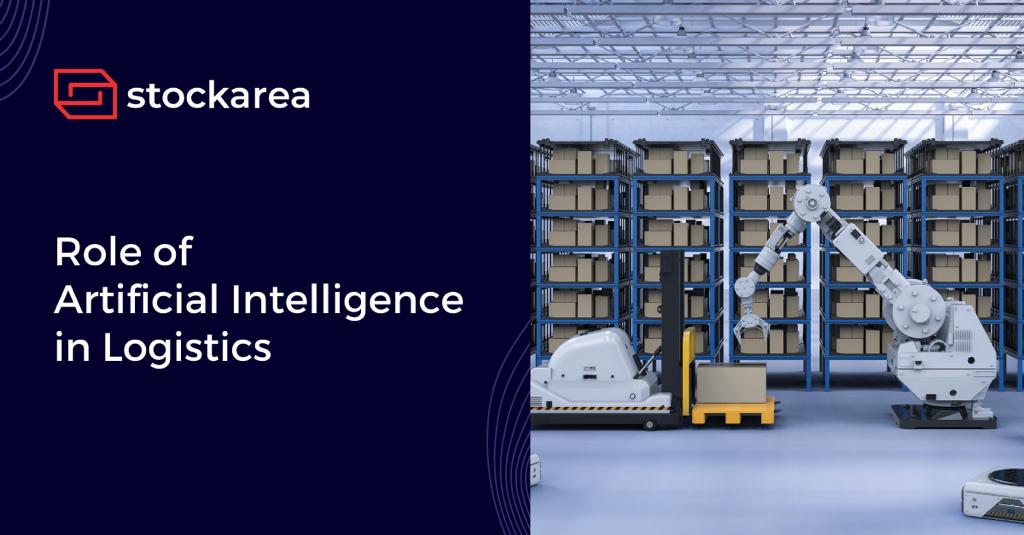Artificial Intelligence is one of the most revolutionary technologies in the modern world. It benefits businesses worldwide by increasing efficiency and maximizing resource utilization. AI has also made its way into logistics, where it can provide a slew of benefits to businesses willing to embrace developing technology. Artificial intelligence in the logistics industry is a rapidly growing field that has the potential to alter how companies operate fundamentally. Industry leaders are developing cutting-edge solutions for driverless vehicles and other innovative technologies. These advancements provide numerous benefits, including higher efficiency in management duties such as order fulfillment, increased inventory accuracy, shorter delivery times, and more accurate forecasting models.
How Artificial Intelligence is disrupting logistics
The logistics industry has been transformed by artificial intelligence. The following are four ways artificial intelligence-driven technology can help firms improve and reinvent their logistics.
1. Self-Driving Vehicles
Self-driving or autonomous vehicles have the potential to increase the efficiency of delivery significantly. Self-driving cars will shorten delivery time and reduce shipping costs by autonomously transporting goods from factories, retail locations, and distribution centers to their destinations. They also ensure an ideal operating system by increasing data collection, sharing, and integration. This technology will increase the distribution process’s efficiency by eliminating transportation impediments and hassles.
2. Robotics
Robotics is a term that refers to the application of intelligent machines to the process of supply chain management. In general, robots can do routine tasks such as delivery, transportation, storage, picking, packaging, and routing. The significant contrast between conventional industrial robots and AI-assisted robots is that the latter can perform more complex tasks autonomously. Intelligent robots can evolve by acquiring new jobs and executing tricky actions. This means that this equipment can partially replace humans in the distribution process, making it more predictable, manageable, and successful.
3. Big Data
Logistics, like any other industry, generates a large amount of data. Without a well-maintained data management system, managing data will become more challenging. Businesses can save money and avoid late shipments and deliveries by syncing data from various sources, including drivers’ applications, devices, and systems, and analyzing how different elements affect the delivery process. Using AI-driven data analytics, organisations can account for variables such as fleet maintenance schedules, vehicle sensors, adverse weather, and fuel costs. It gives drivers critical data pointers and assists them in travelling more efficiently, and enables businesses to decrease their logistical expenses.
Benefits of AI in Logistics
AI technology continues to transform the logistics sector in profound ways in order to expedite shipments. There are numerous advantages to logistics enabled by artificial intelligence (AI). Each stage of the logistics can benefit from Artificial Intelligence.
1. Accurate Inventory Management
Due to its capacity for handling large amounts of data, AI-driven technologies can be extremely useful in inventory management. Accurate inventory management can help ensure that products enter and exit a warehouse in the proper sequence. There are numerous inventory-related variables, such as order processing, picking, and packing, which can become extremely time-consuming and prone to error. Effective inventory management can assist avoid overstocking, insufficient stock, and unexpected stock-outs.
2. Increase Warehouse Efficiency
Artificial intelligence is altering warehouse procedures such as fulfilment process, data collection and analysis, as well as inventory management, enabling businesses to increase efficiency and income. AI is used in warehousing to forecast demand, adjust orders, and reroute shipments in transit. You can alter your order placements in response to these forecasts and have in-demand commodities delivered to nearby warehouses as needed. If the chain contains numerous warehouses, AI can connect them to determine the most efficient method of moving the inventory. When demand for specific products is predicted and logistics are planned well in advance, you can offer better customer service and reduce warehousing costs.
3. On-Time Delivery
AI systems can reduce reliance on manual work, thereby speeding up, securing, and smartening up the entire process. This enables on-time delivery to the customer in accordance with the agreement. Smart roadways are one application of artificial intelligence which enables on-time delivery in the logistics business. Smart roads contribute to increased road safety and reduce logistical issues and delays caused by inclement weather, resulting in faster deliveries. Roads equipped with sensors can detect traffic volumes and trends, as well as alert vehicles to impending traffic congestion.
Final Thoughts
Adopting new technologies is one of the most effective techniques for streamlining the supply chain and logistics operations. AI has many applications in the logistics industry. Businesses worldwide are incorporating this transformative technology into their daily operations. Artificial intelligence enables the acceleration and simplification of numerous critical operations. Automating regular procedures that would take a long time by hand increases efficiency and accuracy and decreases the likelihood of human error. As a result, implementing AI in the logistics business has the potential to reduce costs while increasing customer satisfaction.
Related posts
- The Complete Guide On In-House Logistics
- Navigate Supply Chain Disruptions With Digitalization
- 5 Key Differences Between Supply Chain Management & Logistics
- Top 10 Shipping Companies In Mumbai
- List Of 11 Best Logistics Companies In India
- 6 Effective Ways To Grow Your Logistics Business
- Only Technology Can Solve the Industrial Supply Chain Crisis
- Top 10 Latest Supply Chain Trends In 2024
- 7 Latest Freight Forwarding Trends In 2024
- Cross-Border Logistics Challenges and Solutions
- A Complete Guide On Value Chain And Its Components
- 8 Major Advantages Of 4PL
- Supply Chain Vs Value Chain – What’s The Difference?
